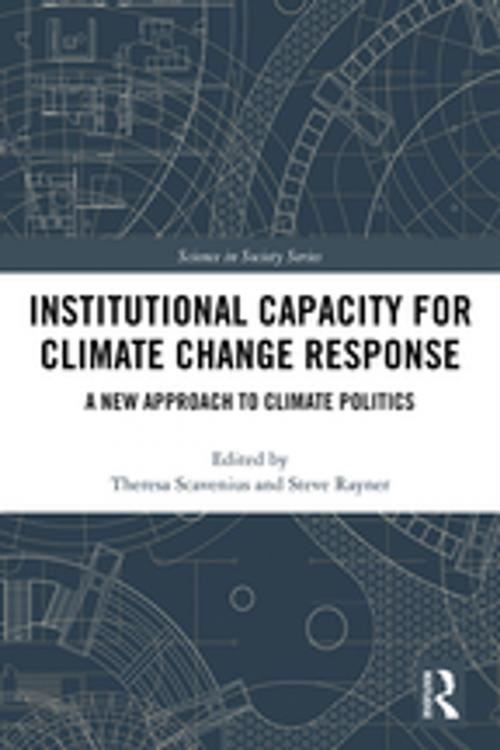Institutional Capacity for Climate Change Response
A New Approach to Climate Politics
Business & Finance, Economics, Sustainable Development, Nonfiction, Science & Nature, Nature, Environment, Ecology, Social & Cultural Studies, Political Science, Government, Public Policy| Author: | ISBN: | 9781317309789 | |
| Publisher: | Taylor and Francis | Publication: | December 15, 2017 |
| Imprint: | Routledge | Language: | English |
| Author: | |
| ISBN: | 9781317309789 |
| Publisher: | Taylor and Francis |
| Publication: | December 15, 2017 |
| Imprint: | Routledge |
| Language: | English |
In a period of rapid climate change and climate governance failures, it is crucial to understand and address how effectively different political institutions can and should react to climate change.
The term 'institutional response capacity' can be defined as a measurement for how effective political institutions may respond to threats and challenges such as climate change. This book sets out to provide a venue for the discussion of how to conduct climate politics by offering new perspectives on how social and political institutions are capable of responding to climate change. In doing so, the book explores how democracy, institutional design and polycentric governance influence social and political entities’ capacity to mitigate, adapt, address and transform climate change. The book offers building blocks for a new agenda of climate studies by focusing on institutional response capacity and by offering a new approach to climate governance at a time when many political initiatives have failed.
This interdisciplinary volume is a valuable resource for academics, researchers and policy-makers in the areas of anthropology, political science, geography and environmental studies.
In a period of rapid climate change and climate governance failures, it is crucial to understand and address how effectively different political institutions can and should react to climate change.
The term 'institutional response capacity' can be defined as a measurement for how effective political institutions may respond to threats and challenges such as climate change. This book sets out to provide a venue for the discussion of how to conduct climate politics by offering new perspectives on how social and political institutions are capable of responding to climate change. In doing so, the book explores how democracy, institutional design and polycentric governance influence social and political entities’ capacity to mitigate, adapt, address and transform climate change. The book offers building blocks for a new agenda of climate studies by focusing on institutional response capacity and by offering a new approach to climate governance at a time when many political initiatives have failed.
This interdisciplinary volume is a valuable resource for academics, researchers and policy-makers in the areas of anthropology, political science, geography and environmental studies.















